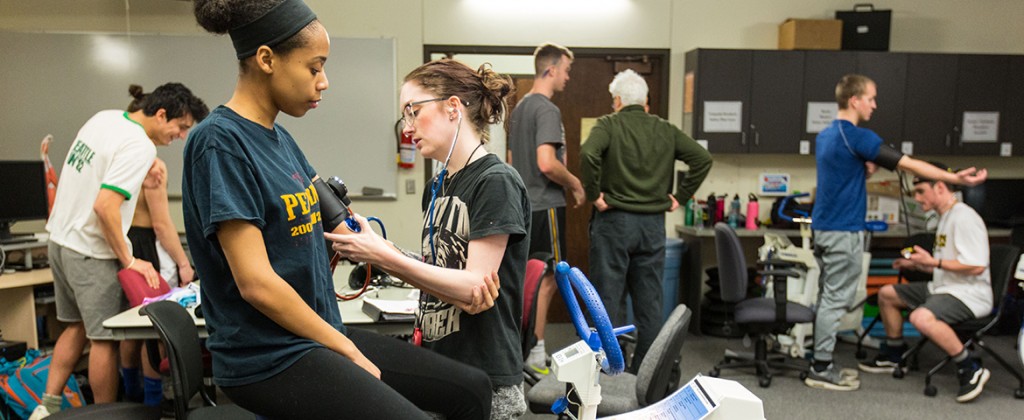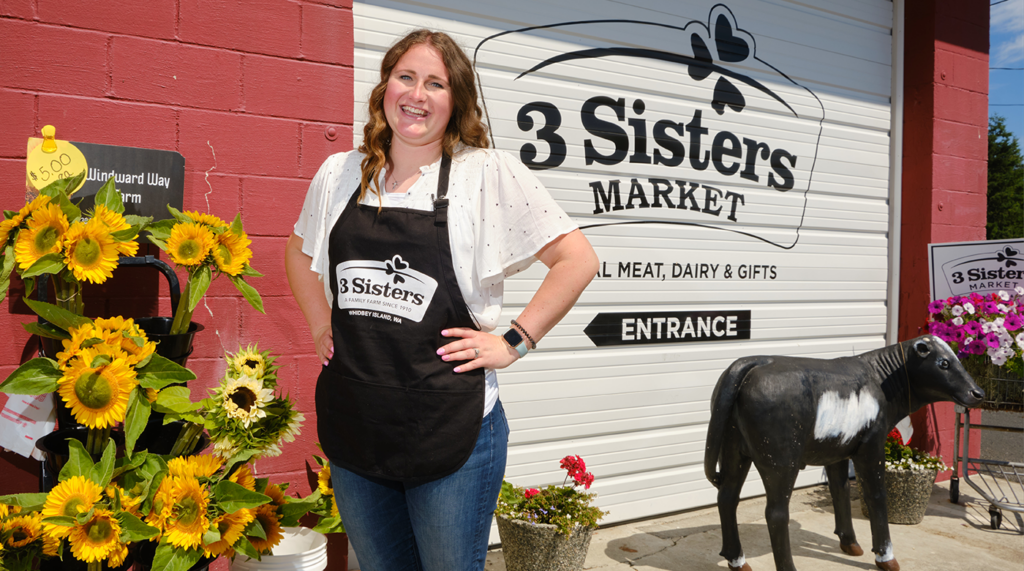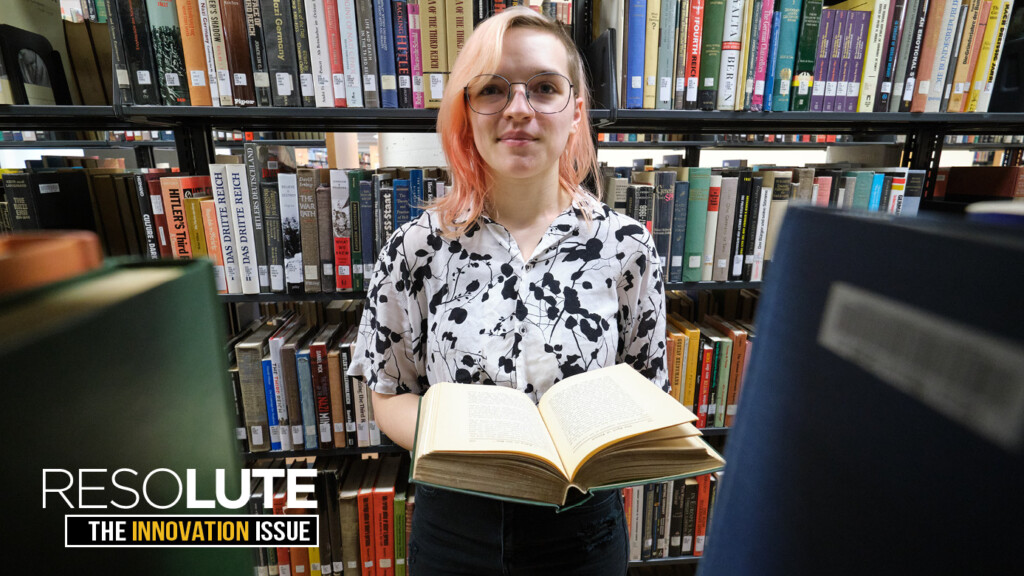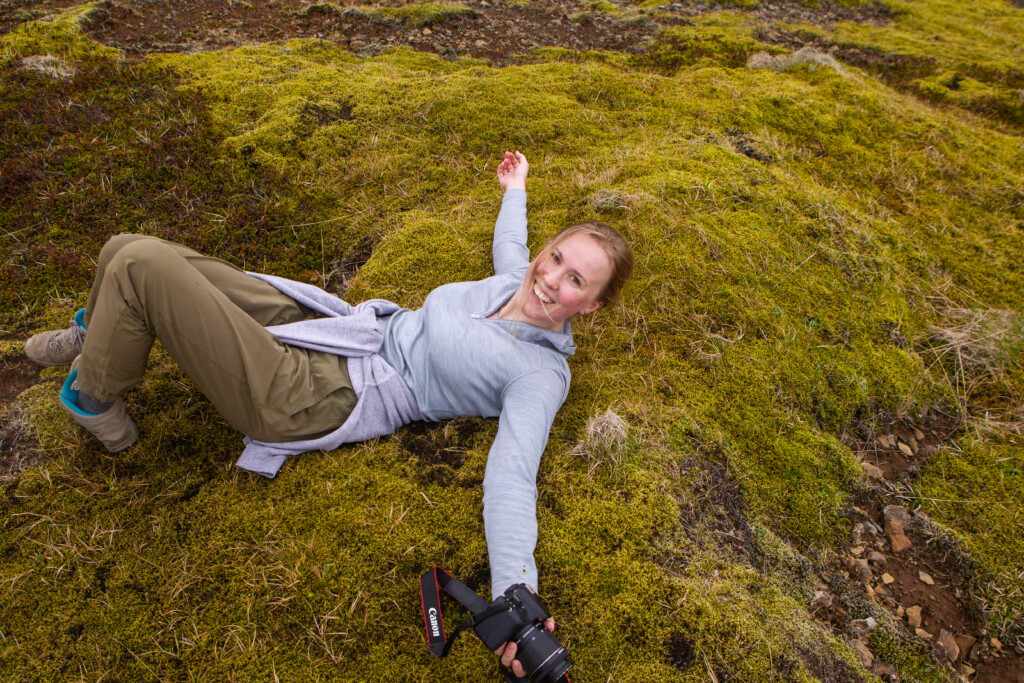Page 255 • (2,872 results in 0.025 seconds)
-

, and the relationship of structures and processes to societal purposes.There are absolutely aspects of my undergraduate education that prepared me for law school. My time spent on the debate team at PLU was very helpful for a lot of the speech and advocacy work that I have to do as a part of my job. I was a political science major, so learning about the political process was helpful. Another thing that helped me a lot was doing the legislative internship for my capstone project during the spring
-

experience that prioritizes one-on-one learning in a practitioner-focused environment. Participants will choose between two concentrations, Applied Sport Psychology and Applied Exercise Science, and every student will pair with a faculty advisor to complete an applied, evidence-based final project before graduation. “We just have incredible faculty right now that, quite honestly, are unmatched. I mean that sincerely,” said Dr. Colleen Hacker, a PLU Kinesiology professor and medal-winning Olympics mental
-

business education in a student-centered learning environment grounded in the liberal arts that inspires students to: LEARN for Life, LIVE Purposefully, LEAD Responsibly, and CARE for Others.Becoming a Lute Donwen transferred from Bellevue College to PLU for the opportunity to play volleyball and earn her business degree. She says she always knew she would return to Whidbey Island and work for the family business in some capacity. She just wasn’t certain what that would entail. “My first degree is in
-

was very stressful. I, like my coworkers, lacked lab experience due to the pandemic and everything was intimidating at first,” engineering major Sandy Montgomery ’23 says. “Once I had a couple of weeks to figure out where everything was and to practice basic techniques, I felt much more comfortable working independently.” Jackie Lindstrom ’22, a chemistry major and fellow student researcher, said that after the year of remote learning, the in-lab experience was invaluable. “I am more appreciative
-

through rigorous conversations and planning with a committee of faculty who support and guide them. “You take courses from all around the university, as well as complete experiential learning experiences, like studying abroad, internships or applied research,” Suzanne Crawford O’Brien, interim dean of interdisciplinary programs, said. “Some students opt for this because they have a dream job in mind — one that doesn’t fit in a more traditional major.” Every year, one to three PLU students graduate
-

uses of surveillance related to safety. How do you encourage and equip your students to ask — or answer — tough questions about surveillance or other human rights issues? I think a big part of it is encouraging them to use an interdisciplinary approach to connect what they’re learning in class with their own experiences, and to what they can learn from the lived experiences of people around them. For example, in this post-Roe surveillance area, we can’t think of the anti-abortion movement without
-

technology skills and higher education knowledge, along with his desire to uplift others, and forge his own career path at PLU. We chatted with him to learn more.What do you love most about your job? Because my position is systems-focused, I get to look at and help contribute to PLU improving the student experience on campus. How do the PLU residential life teams support students with mental, physical and social health? Our whole Campus Life department does a lot to support students. Through our learning
-

typically be out and about all day in groups of 3 or 4. Finally, phase three is still underway, and this has been the writing process. We had a rough draft due last month, went over it with our research directors, and are now completing our final draft to submit for editing. When you reflect on this experience, what stands out to you? AS: My projects were very specialized to what I am learning at PLU. It was very fun to stretch those muscles and expand on them. The most important thing I came away with
-
content delivery Recognition for significant expertise in an area of specialization Engages in the scholarship of teaching through research, publications, conference presentations, or workshops to further advance teaching excellence and expertise Demonstrates teaching excellence as characterized by challenging learners intellectually; communicating effectively; and showing a commitment to learning Makes substantive and ongoing contributions to the School of Nursing curricula and academic programs
-
who have an extensive theoretical background in peace and conflict studies, but for students who see the value of building peace in their lives and are curious and open to new learning related to these topics. What are the requirements for letters of recommendation?At least one letter is to be from a faculty member who knows your academic work well. The other letter may be written by a faculty person or any other person who can speak to your academic strengths, personal strengths, and qualities
Do you have any feedback for us? If so, feel free to use our Feedback Form.


